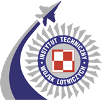Our research areas
-
Fatigue and fracture
We investigate fatigue, primarily of polymer matrix composite materials with a special focus on the self-heating effect. We analyze the structrual behavior, micro- and macromechanics, damage mechanisms, rheology, including transitions, etc. Moreover, we develop fatigue models and perform numerical simulations of fatigue and self-heating effect. Our specific research are focused also on extending the structural residual life of composites using cooling techniques.
-
Non-destructive testing and structural health monitoring
We are working with various NDT and SHM techniques, including thermography, acoustic emission, ultrasonic testing, shearography, D-Sight optical technique, eddy current testing, X-ray computed tomography. We also use modal analysis for damage detection and identification in structures as well as other techniques applicable for inspection of mechanical and civil structures. The NDT technique introduced and developed by the group is the self-heating based vibrothermography, which is a testing approach that does not require external thermal excitation.
-
Data processing and machine learning
In our studies, we develop and implement signal and image processing algorithms, like wavelet analysis and spatial transforms, as well as machine learning techniques, which include statistical analysis, classification and optimization algorithms. These developments are focused primarily on analysis of experimental fatigue results as well as supporting and sensitivity enhancement in NDT and SHM problems.
Supporting organizations
Our research is supported from the funds of national and international organizations, which support scientific research activities.



















